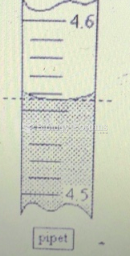This topic contains a solution. Click here to go to the answer
|
|
|
Did you know?
Astigmatism is the most common vision problem. It may accompany nearsightedness or farsightedness. It is usually caused by an irregularly shaped cornea, but sometimes it is the result of an irregularly shaped lens. Either type can be corrected by eyeglasses, contact lenses, or refractive surgery.
Did you know?
Approximately 500,000 babies are born each year in the United States to teenage mothers.
Did you know?
If all the neurons in the human body were lined up, they would stretch more than 600 miles.
Did you know?
On average, the stomach produces 2 L of hydrochloric acid per day.
Did you know?
More than nineteen million Americans carry the factor V gene that causes blood clots, pulmonary embolism, and heart disease.







